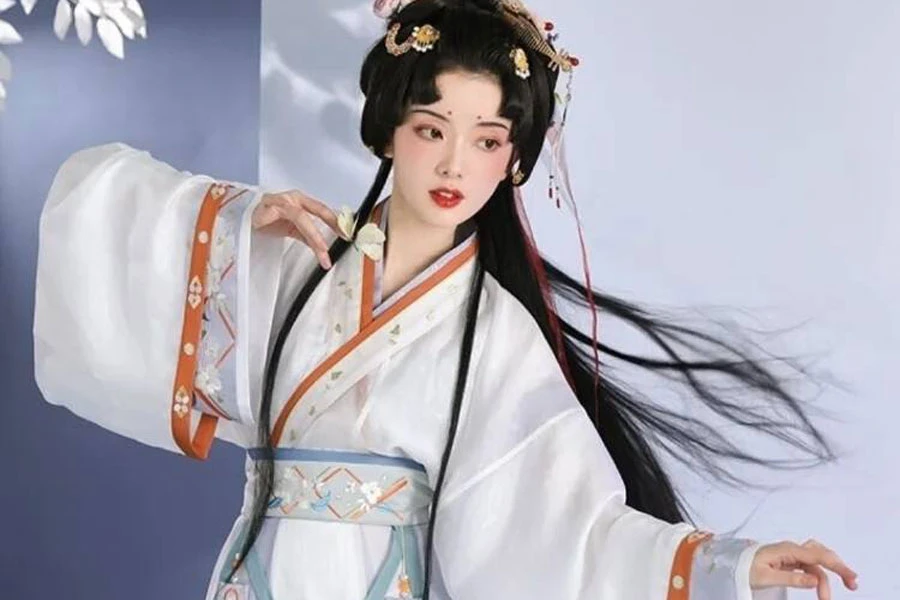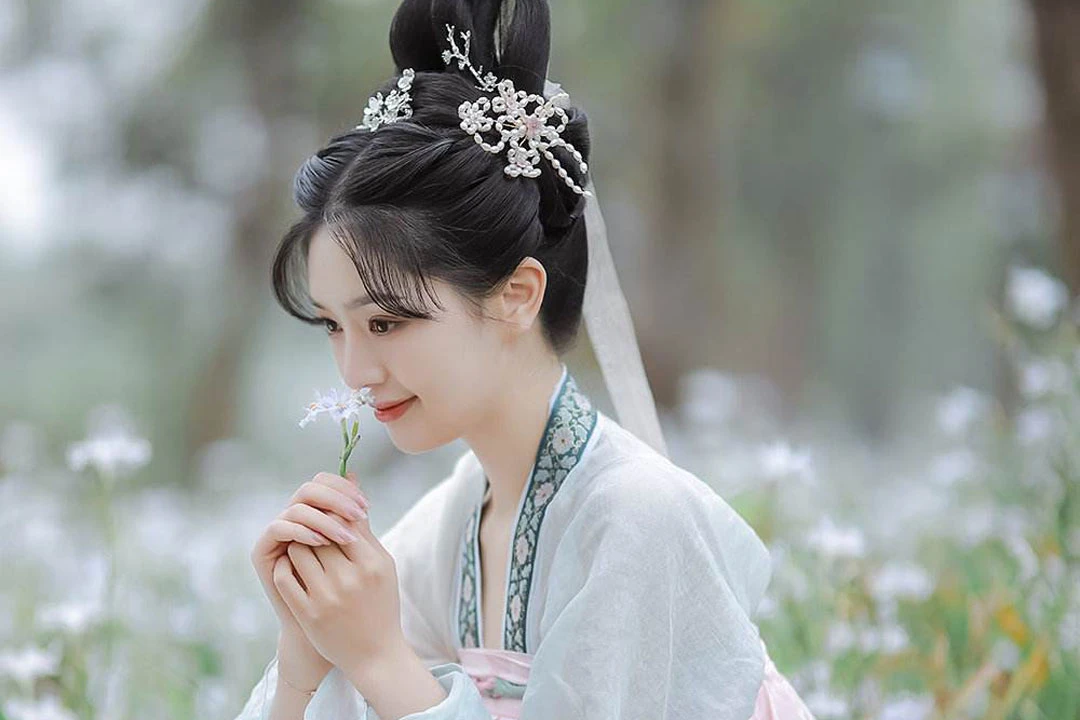Taiwan, a vibrant island nation with a complex history and cultural diversity, has a unique identity that reflects a blend of indigenous traditions, Chinese influences, and modern cosmopolitanism. In exploring the traditional dress of Taiwan and the adoption of Hanfu, we embark on a journey through the layers of history, identity, and cultural expression that shape the island’s sartorial landscape.
I. Taiwan’s Traditional Dress: A Mosaic of Cultures
- Indigenous Taiwanese Attire
- Taiwan is home to various indigenous groups, each with its distinct language, customs, and traditional dress. The attire of Taiwan’s indigenous peoples is a colorful reflection of their connection to the land, spiritual beliefs, and communal identity.
- Examples include the exquisite beaded garments of the Amis people or the vibrant woven fabrics of the Atayal community. These indigenous attires embody a deep-rooted connection to nature and heritage.
- Hakka and Hoklo Influences
- The Hakka and Hoklo communities, representing significant portions of Taiwan’s population, contribute to the island’s cultural diversity. Traditional dresses from these communities showcase the influence of Chinese culture.
- The Hakka women, for instance, often wear intricately embroidered dresses with distinctive patterns, while the Hoklo community’s attire might include elegant, form-fitting garments adorned with exquisite details.
- Modern Adaptations
- Over the years, traditional dress in Taiwan has undergone modern adaptations, influenced by global fashion trends and cultural exchange. While many still honor and wear their cultural attire on special occasions, everyday wear often reflects a fusion of traditional and contemporary styles.
Do Taiwanese wear Hanfu?
Yes. While the wearing of Hanfu is not as widespread in Taiwan as it is in mainland China, there is a growing community of Hanfu enthusiasts and advocates in Taiwan. The adoption of Hanfu in Taiwan is part of a broader trend of reconnecting with traditional Chinese culture and heritage. However, it’s essential to note that the majority of Taiwanese people typically do not wear Hanfu in their everyday lives.
The interest in Hanfu in Taiwan is often driven by a passion for traditional Chinese clothing, a desire to explore cultural roots, and a fascination with the historical aspects of Hanfu. This interest has manifested in various ways, including the organization of Hanfu events, cultural exchanges, and the establishment of online communities where enthusiasts share their experiences, knowledge, and creations related to Hanfu.
Hanfu gatherings in Taiwan may include activities such as Hanfu fashion shows, historical reenactments, and educational sessions about the different styles and periods of Hanfu. These events provide a platform for individuals who appreciate and wish to promote traditional Chinese clothing to come together, share their enthusiasm, and celebrate their cultural heritage.
II. Hanfu in Taiwan: A Cultural Renaissance
- Historical Context
- The revival of interest in traditional Chinese clothing, known as Hanfu, has resonated beyond mainland China and has found a place in Taiwan. Hanfu, with its rich history and aesthetic appeal, has captured the imagination of individuals seeking to reconnect with their Chinese heritage.
- Hanfu Enthusiasts and Communities
- While Hanfu is not a mainstream form of attire in Taiwan, there is a growing community of Hanfu enthusiasts and advocates. These individuals are passionate about promoting traditional Chinese clothing, participating in events, and fostering a deeper understanding of the cultural significance of Hanfu.
- Cultural Exchange and Events
- Cultural exchange events and Hanfu gatherings in Taiwan provide platforms for enthusiasts to showcase their love for traditional clothing. These events often include Hanfu fashion shows, historical reenactments, and educational sessions to raise awareness about the diverse styles and periods of Hanfu.
III. Challenges and Controversies: Navigating Identity and Perception
- Cultural Appropriation Concerns:
- The adoption of Hanfu in Taiwan, as elsewhere, has sparked discussions about cultural appropriation. Critics argue that the wearing of Hanfu by non-Chinese individuals, including Taiwanese, may oversimplify or romanticize a complex cultural history.
- Identity and National Narratives:
- Taiwan’s complex political status adds another layer to discussions about identity and attire. The island has a unique history shaped by Japanese colonization, Chinese influence, and its own indigenous cultures. The question of whether wearing Hanfu aligns with a distinct Taiwanese identity or connects more with broader Chinese cultural roots is a subject of ongoing debate.
- Education and Cultural Sensitivity:
- Advocates for Hanfu in Taiwan stress the importance of education and cultural sensitivity. They emphasize the need to understand and respect the historical context of traditional clothing, encouraging open dialogue to bridge gaps in perception and foster a nuanced appreciation for diverse cultural expressions.
IV. The Future of Traditional Dress in Taiwan:
- Preserving Heritage:
- Efforts to preserve and promote Taiwan’s rich heritage and traditional dress are ongoing. Initiatives include cultural festivals, museum exhibitions, and educational programs aimed at instilling pride in the island’s diverse cultural tapestry.
- Balancing Tradition and Modernity:
- As Taiwan continues to navigate its unique identity, the challenge lies in striking a balance between honoring traditional dress and embracing the dynamic shifts of modernity. The evolving nature of attire reflects the island’s adaptability and openness to change.
- Global Connections:
- Taiwan’s global connections, both historical and contemporary, contribute to the diversity of its traditional dress. The island’s ability to integrate various influences while maintaining a strong sense of identity makes its sartorial landscape a fascinating reflection of its multicultural past and present.
Conclusion
Taiwan’s traditional dress is a vibrant mosaic of indigenous, Hakka, Hoklo, and modern influences. The adoption of Hanfu in Taiwan, though not widespread, signifies a cultural renaissance and a longing to connect with Chinese heritage. As Taiwan navigates its complex identity, the traditional attire becomes not just a garment but a symbol of the island’s rich and multifaceted history. The ongoing conversations about Hanfu and traditional dress in Taiwan provide a glimpse into the intricate interplay of culture, identity, and the ever-evolving narrative of this resilient island nation.


